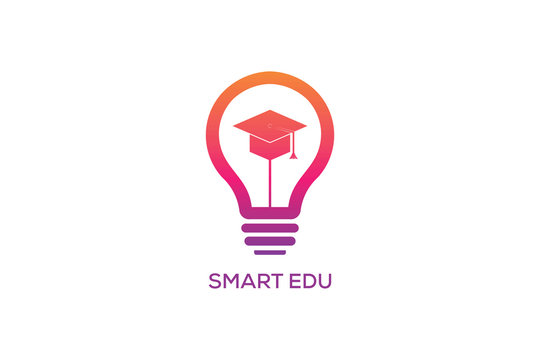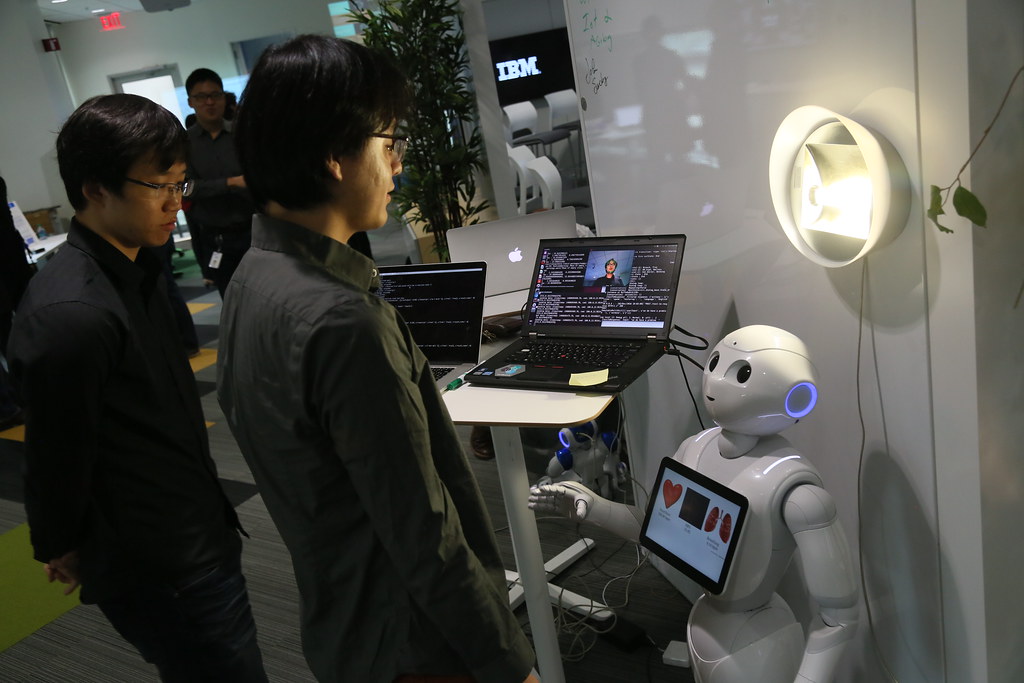As the education system continues to evolve with technological advancements, Artificial Intelligence (AI) has emerged as a game-changer. In recent years, AI has been making waves in the education field by enhancing student learning and performance. In this blog post, we’ll explore how AI is transforming exam performance for UK students. Get ready to be amazed at how this futuristic technology is revolutionizing the way students prepare for exams and take tests.

Introduction: How AI is Transforming Exam Preparation for UK Students
AI technology is transforming the way UK students prepare for exams. With the help of artificial intelligence, students can now receive personalized learning experiences that cater to their individual needs and learning styles. This technology has also made it possible to identify areas of improvement, allowing students to focus on their weaknesses and improve their exam results. AI solutions have also been developed to reduce stress and anxiety during exams, helping students perform at their best. Additionally, AI tools have made education more accessible by overcoming language barriers and enhancing accessibility for students with disabilities. As we move towards the future, it is clear that integrating cutting-edge technologies like AI into classroom settings will unlock new possibilities for student achievement. However, there are also challenges facing the integration of AI in UK schools that must be addressed in order to fully realize its potential.
The Impact of AI on Traditional Learning Methods
Artificial intelligence is changing the way students learn and prepare for exams. With the help of AI-powered tools, traditional learning methods are being transformed into more personalized and efficient approaches. One of the most significant impacts of AI on education is its ability to provide real-time feedback to students. This feedback can help students identify their strengths and weaknesses, allowing them to focus on areas that need improvement. Additionally, AI-powered tools can analyze student data to identify patterns and provide insights into how students learn best. This information can be used to tailor learning experiences to individual needs, making education more accessible and effective for all students. As AI continues to evolve, it has the potential to revolutionize education by providing new opportunities for student achievement and success.
Personalized Learning with the Help of AI Technology
Artificial Intelligence (AI) is revolutionizing exam performance for UK students by providing personalized learning experiences catered to individual needs. Adaptive AI technologies such as machine learning algorithms analyze student’s strengths and weaknesses, identifying gaps in knowledge and offering customized suggestions on what topics to study next.
This approach provides students with a more efficient way of understanding difficult concepts and retaining information. Students can access relevant materials that suit their pace and style of learning, eliminating the need for a one-size-fits-all approach used in traditional classrooms.
Moreover, utilizing AI tools like interactive quizzes or chatbots makes the learning process fun and engaging. In turn, this helps improve motivation levels among students, leading them towards better academic achievements. With its ability to personalize education on an unprecedented level, it seems clear that AI technology is set to become a game-changer in improving exam performances for UK pupils.
Using AI to Identify Areas of Improvement for Better Exam Results
One major advantage that AI brings to the table is its ability to analyze student performance data and identify areas where improvement is necessary. By using algorithms, machine learning, and predictive analytics tools, educators can track students’ progress over time and gain insights into their strengths and weaknesses.
This allows teachers to tailor their instruction methods accordingly and provide individualized support where needed. For instance, if a student struggles with math problems involving fractions or decimals consistently, an AI-powered program can flag this weakness early on so that the teacher can focus more attention on strengthening those skills.
By analyzing a range of factors such as test scores, homework completion rates, attendance records, social interaction patterns in class settings etc., AI technology can help educators create effective action plans to improve exam results while also boosting overall academic achievement levels.

Reducing Stress and Anxiety During Exams with AI Solutions
Reducing Stress and Anxiety During Exams with AI Solutions
Exam stress and anxiety can have a significant impact on the performance of students, often hindering their ability to perform at their best. However, AI technology is making it possible for schools to provide personalized support to help minimize exam-related stress.
One example of this is the use of chatbots that offer guidance and answer queries related to exams or general studying. These bots are available 24/7, which means students do not have to wait until office hours to get the help they need. The chatbots also analyze student data such as their learning preferences, pace, strengths and weaknesses in order to offer tailored information that will maximize individual potential.
Another innovative approach is through virtual reality simulations where students can practice taking exams under realistic exam conditions in a safe environment. This helps them become more familiar with test-taking procedures while boosting confidence levels.
By leveraging AI solutions like these, UK schools are helping ensure that all students receive equal opportunities for success by reducing exam-related stressors that might be prohibitive for some learners.

Overcoming Language Barriers and Enhancing Accessibility through AI Tools
AI-Powered Language Translation Tools: Breaking Down Language Barriers in UK Schools
AI-powered language translation tools are transforming the way UK schools approach language barriers. With the help of artificial intelligence and machine learning, these tools can accurately translate written and spoken language in real-time. This technology is particularly useful for students who are non-native English speakers or those with hearing impairments. AI-powered translation tools not only enhance accessibility but also promote inclusivity in the classroom. By breaking down language barriers, students can fully participate in classroom discussions and better understand course materials. As AI technology continues to advance, we can expect to see even more innovative solutions for overcoming language barriers in UK schools.
Improving Accessibility with AI-Enabled Exam Performance Analysis Tools
Artificial intelligence is also breaking down language barriers to improve accessibility for students. For non-native speakers or those with learning disabilities, traditional exams can be daunting and discouraging. However, AI-enabled exam performance analysis tools can provide a solution by identifying specific areas of weakness and tailoring the exam experience accordingly. This includes real-time translation options and audio support for visually impaired students so that they too can participate in exams on an equal footing. By improving accessibility through AI advances, more students will have the opportunity to excel academically regardless of their background or abilities, ultimately leading to greater success overall.
Reinventing Classroom Dynamics Through Assistive AI Technology
Assistive AI technology is transforming the way UK students with language barriers or disabilities learn and interact in the classroom. With the help of speech recognition software, students can now communicate more effectively with their teachers and peers. Additionally, AI-powered translation tools are making it easier for non-native English speakers to understand course materials and participate in class discussions. These technologies are also improving accessibility for students with visual or hearing impairments, providing them with real-time captioning and audio descriptions. By breaking down language barriers and enhancing accessibility, AI is helping to create a more inclusive learning environment for all students.
Transforming Learning Experience for Students with Special Needs through EdTech Innovation
Artificial intelligence has become a game changer in education, especially for students with special needs. AI-powered tools such as speech recognition software and language translation services help improve accessibility in the classroom, making it easier for students to comprehend learning materials. These tools are particularly beneficial for those who struggle with language barriers or have visual or hearing impairments.
Moreover, AI-based edtech innovation also offers personalized learning experiences that cater to each student’s unique requirements. The system can adapt to their pace of understanding and modify teaching methods accordingly. This helps disabled students feel more connected and integrated into the educational environment while providing them with equal opportunities to excel academically.
The Future of Education: Integrating Cutting-Edge Technologies into Classroom Settings
AI-Powered Personalized Learning: Tailoring Education to Individual Needs
One of the most significant benefits of AI technology in classrooms is its ability to provide personalized learning experiences. With AI-powered tools, educators are now able to analyze data on each student’s strengths and weaknesses, creating personalized study plans that cater specifically to their individual needs. This increases engagement and motivation among students who may have previously struggled with more traditional classroom methods.
AI algorithms can also take into account various factors such as a student’s learning style or pace, customizing content delivery accordingly. By tailoring education to meet the unique requirements of each learner, we are better equipping them for success in exams and beyond.
Automated Grading and Feedback: Streamlining Assessment Processes
Automated grading and feedback systems powered by AI technology are transforming the way assessments are conducted in classrooms. With automated grading, teachers can easily track student progress and provide feedback in real-time, saving hours of manual work. These systems can also identify patterns in learner performance data to assist educators with personalized instruction plans for each student. Moreover, automated grading enhances objectivity and consistency across evaluations. By integrating cutting-edge technologies like automated grading and feedback into classroom settings, UK schools could improve their testing efficiency while allowing teachers more time to focus on providing individualized support needed to produce successful outcomes for students.
Virtual Tutors and Mentors: Enhancing Student Support Systems
Virtual tutors and mentors powered by AI technology have the potential to revolutionize student support systems. With personalized learning becoming more prevalent, virtual tutors can provide individualized guidance and instruction that caters to each student’s unique needs. These virtual assistants can also offer additional resources, such as study materials or practice tests, in real-time. Furthermore, students can receive immediate feedback on their performance from these AI-powered tutors and mentors. By providing this level of personalized support, virtual tutors have the ability to enhance academic achievement and increase exam performance for students across a range of subjects.
Ethical Considerations in AI-Driven Education: Balancing Efficiency and Fairness
As AI continues to transform education, it is vital that ethical considerations are taken into account. One major concern is ensuring fairness in the use of AI-driven tools in exam preparation and performance evaluation. While AI can provide personalized learning experiences and identify areas of improvement for individual students, there is a risk of bias if the algorithms used are not carefully designed and tested. Educators must balance the efficiency benefits of using cutting-edge technology with ensuring that all students have an equal opportunity to succeed, regardless of cultural or socioeconomic background. Regular updates and reviews of AI systems can help ensure that they remain fair and effective for all learners.

Challenges Facing the Integration of Artificial Intelligence in UK Schools
Despite the potential benefits, there are several challenges facing the integration of AI in UK schools. One key challenge is a lack of funding and resources for implementing these technologies. Many schools may not have the budget to invest in expensive AI systems or train staff to use them effectively.
Another challenge is ensuring that AI technology is used ethically and does not perpetuate biases or discrimination. It’s important for educators to understand how these tools work and be able to identify any potential issues or biases.
Privacy concerns also arise with the use of AI in education, as student data must be protected and kept secure at all times. As such, it’s essential that teachers receive adequate training on data privacy laws and cybersecurity measures when using these technologies.
In addition, some experts argue that an over-reliance on AI could lead to a reduction in critical thinking skills among students if they become too reliant on algorithms rather than developing their own problem-solving abilities.
Despite these challenges, many educators see great potential for integrating AI into classrooms across the country, provided these tools are implemented responsibly and ethically while enhancing traditional learning methods rather than replacing them entirely.

Conclusion: Unlocking New Possibilities for Student Achievement through Innovations in Education
As AI technology continues to gain popularity and recognition within the UK education system, there are endless possibilities for improving exam performance and overall student achievement. With advancements in personalized learning, stress-reducing solutions, and accessibility enhancements, students can now receive a more holistic and customized education experience. However, obstacles such as funding limitations and teacher training requirements may slow down the integration of AI technologies into classroom settings. As we move forward into an increasingly digitized world, it is essential that we continue to explore innovative ways to leverage cutting-edge technologies for education purposes. By embracing AI solutions and harnessing their power effectively, the future of UK education could see unprecedented levels of success for all students regardless of ability or background.
In conclusion, the integration of AI technology in education has the potential to revolutionize exam performance for UK students. From personalized learning to reducing stress and anxiety during exams, AI solutions are proving to be a game-changer in the field of education. Additionally, AI tools can help overcome language barriers and enhance accessibility for students with disabilities. However, there are still challenges facing the integration of artificial intelligence in UK schools, such as funding and teacher training. Nevertheless, the future of education looks bright as we continue to unlock new possibilities for student achievement through innovations in education. As we move forward, it is essential that we embrace these cutting-edge technologies and use them to create a brighter future for our students.
